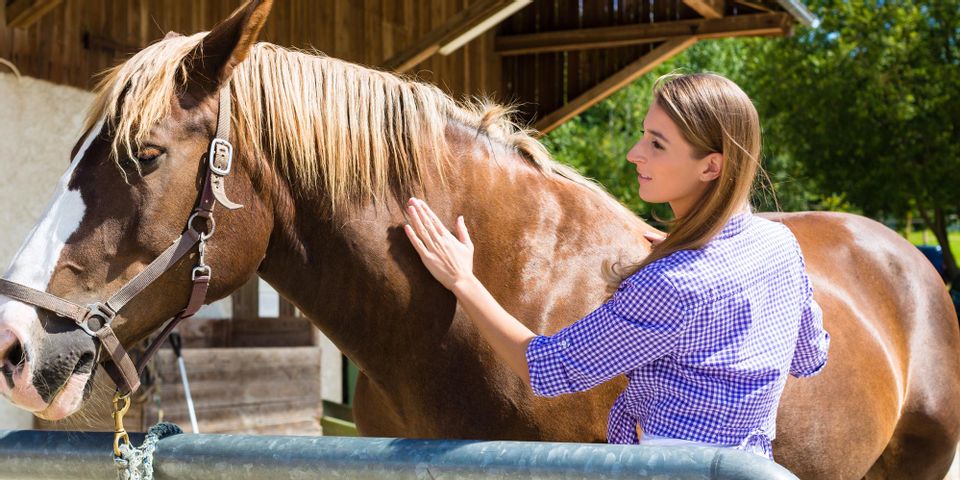
Since horses live outside, they often develop skin conditions. If you notice one of your horses has an issue, you should speak to a pet dermatologist for information about how to treat them. Below are several skin problems your horse may have in its lifetime.
What Skin Problems can Horses Have?
1. Ringworm
Ringworm is a fungal infection that can create cuts and growths in the skin. The highly contagious issue often resembles scabs or scales, but will not always leave ring-shaped marks.
Ringworm can heal without medical attention, but topical treatments and sanitizing the horse’s tack can prevent spreading the disease. Additionally, horses can spread the condition amongst the team. Humans can also get ringworm, so always wear disposable gloves while handling infected horses and gear.
2. Lice
 Horse lice are flat parasites around 2 to 4 millimeters long. They often breed on species with thick coats during the winter. When the babies hatch and the growing infestation bites, the horse will become itchy. You can find lice in areas with multiple horses, such as stables or racetracks, because shared spaces and equipment will spread the parasite.
Horse lice are flat parasites around 2 to 4 millimeters long. They often breed on species with thick coats during the winter. When the babies hatch and the growing infestation bites, the horse will become itchy. You can find lice in areas with multiple horses, such as stables or racetracks, because shared spaces and equipment will spread the parasite.
Contact a pet dermatologist if you notice lethargy, skin irritation, and raw or irritated skin patches. The mane, head, and base of the tail are the most likely to host lice because they have the most hair. Treatments range from shampoos and rinses to topical powders. Owners must also wash their equipment with high heat or boil it to prevent reinfestation.
3. Mange
When horses get mites, they may develop mange as the tiny insects bite their skin. The bugs will burrow into the horse, making the large animal itchy, similar to lice. Older animals and those that are not healthy have a heightened risk of mange.
The signs of this condition include dry, crusty skin, as well as fluid seeping from the affected area. Horses will also rub themselves on fences and the ground to scratch these areas. If a pet dermatologist doesn’t treat this condition with insecticide and oral meds, the affected skin may thicken and harm the horse.
If equine skin issues concern you, contact Veterinary Dermatology Services in Cincinnati, OH. This board-certified pet dermatologist and his staff treat allergies, ear problems, and other skin conditions in horses, dogs, cats, and other animals throughout Ohio, northern Kentucky, and southern Indiana. Visit the website for more information about their services. Call (513) 489-4644 to schedule an appointment.
About the Business
Have a question? Ask the experts!
Send your question

